On World Patient Safety Day (17th Sept 2019) the World Health Organisation stated ‘at least 5 people die every minute because of unsafe care.’
The issue only appears to be getting worse.

Yet we’ve designed our hospitals on the premise that as doctors and nurses we don’t make mistakes – but we’re human just like everyone else – we make mistakes all the time.
In developed nations, as our hospitals become increasingly complex with different equipment, drugs and a constantly fluctuating workforce we must expect the error rate to similarly increase.
For healthcare to improve we need to work differently…….
Healthcare remains one of the most trusted industries – perhaps what we can trust it to do is maintain a rigid top down approach – an approach which at times can resist change and improvement even when it’s beneficial to patient care.
We could blindly carry on in the same direction – the humanitarian catastrophe – or we can take a more difficult path which requires change in ourselves.
Our core beliefs will be challenged – our initial response will be to resist and look for every avenue to deny the changes required.
People don’t resist change, what they resist is being changed.
We’ll need to accept that we are the problem.
We went into healthcare to do the best for our patients – yet we lost our way, as soon as we stopped questioning, perhaps as soon as we stepped foot in the door.
While healthcare is full of highly intelligent, devoted, passionate staff, the healthcare we’ve designed lacks intelligence.
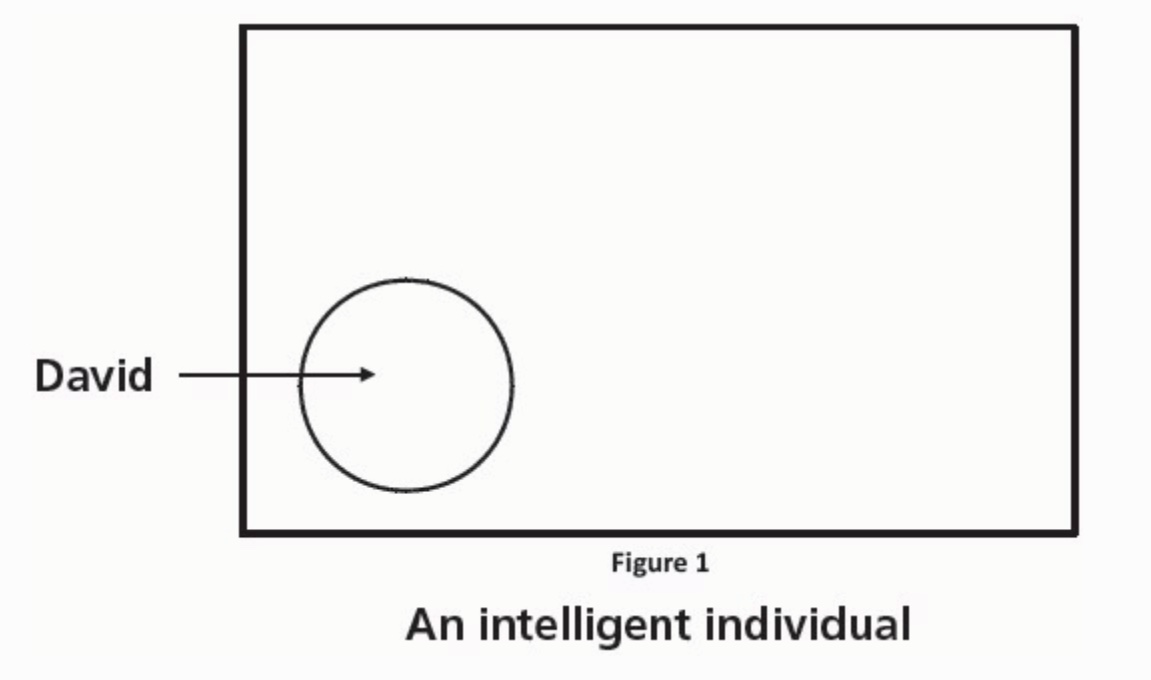
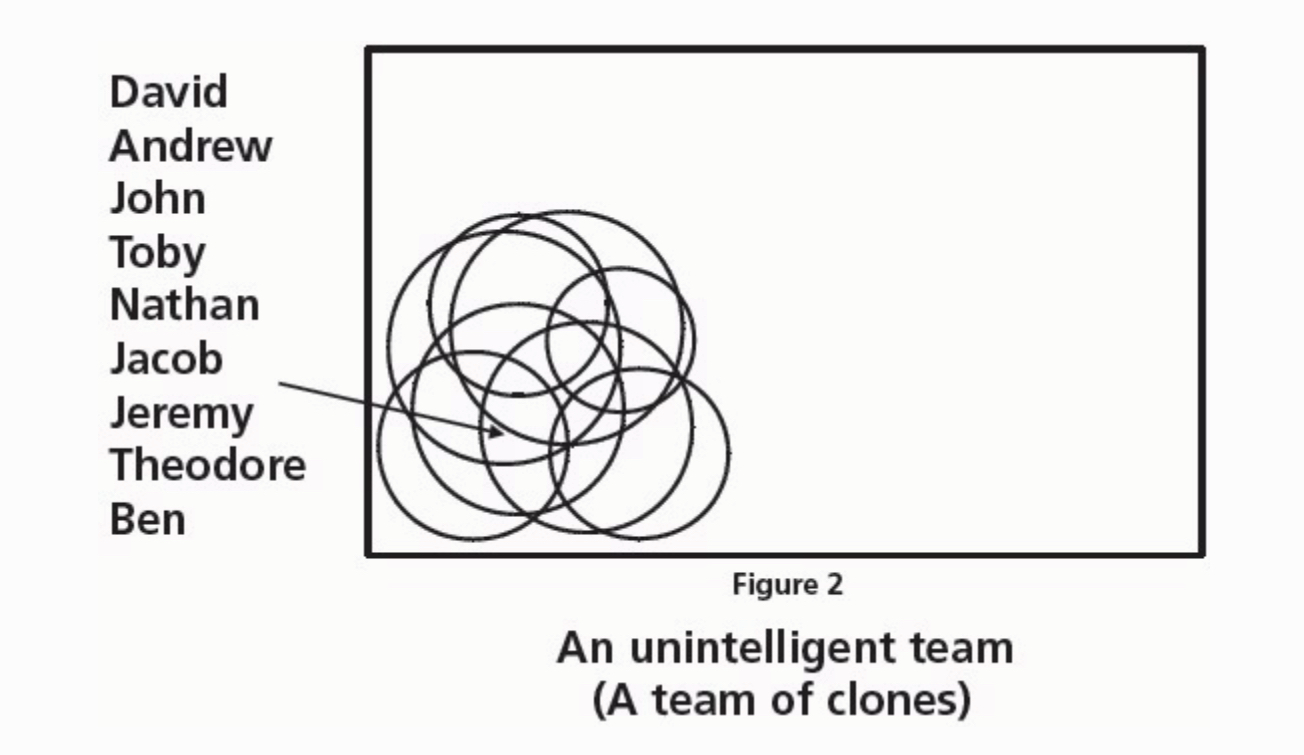
‘We unconsciously enjoy being surrounded by people who think in the same way, who share our perspectives, who corroborate our prejudices. It is comforting and validating. It makes us feel individually smart even as we are becoming even more collectively stupid.’
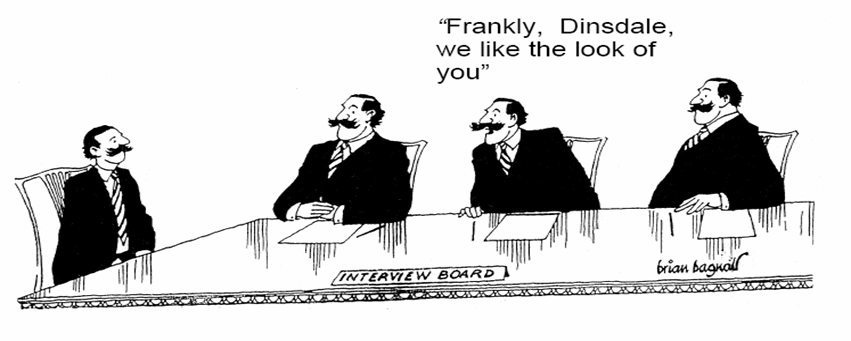
The echo chambers of healthcare institutions have calloused our thinking so much that we are numb to better ideas. It’s a learned helplessness. Did we reach this stage a long time ago when we lost the ability to suggest better ways of doing things? Did we pay healthcare too much respect – believing, trusting wholeheartedly that it would do the right thing?
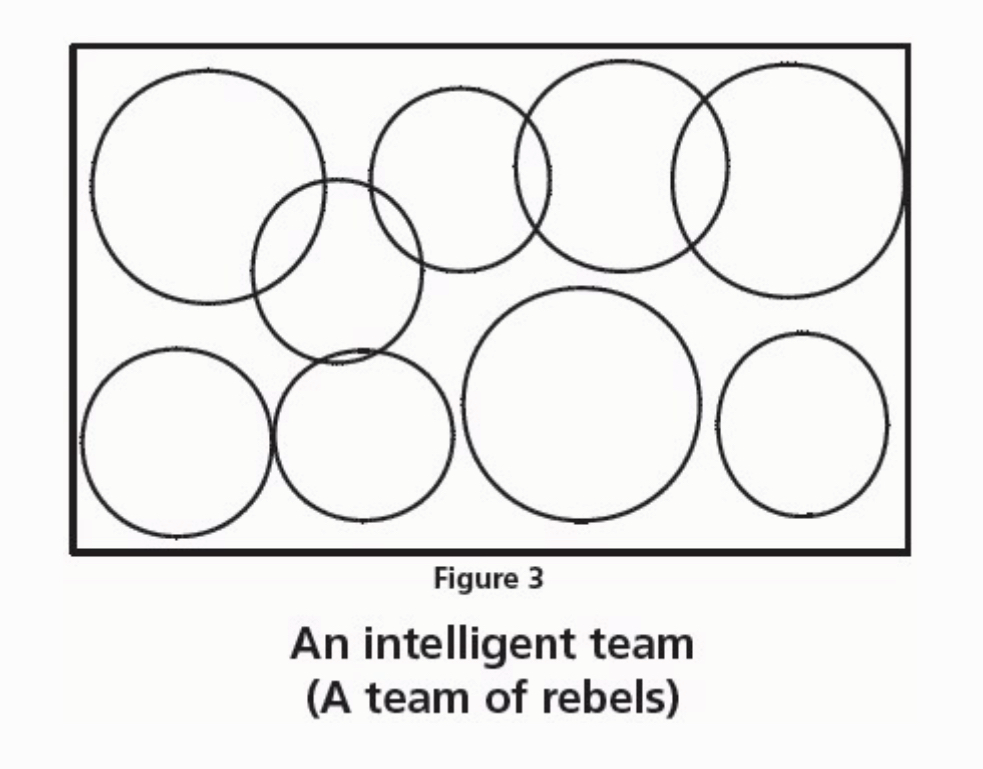
‘A well functioning democracy depends not only on freedom of censorship but also on unsought, unanticipated and even unwanted exposures to diverse topics, people and ideas.’
Yet we exist in dominance hierarchy’s. Healthcare is held back by an insider mindset.
Have we been indoctrinated with healthcares convictions?
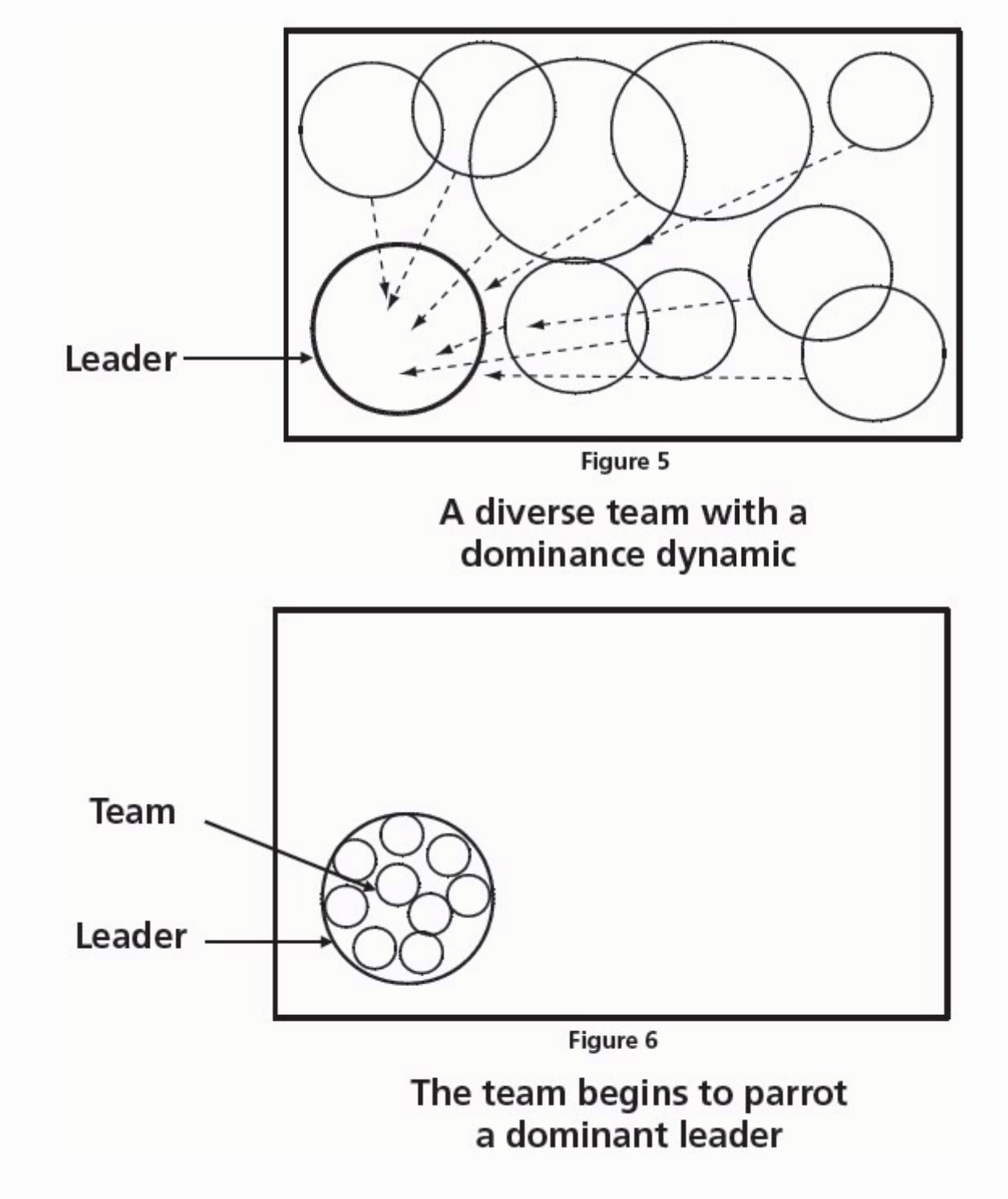
Has the environment sustained by a top down structure become our way of being?’ Are we really going to allow healthcare to continue in this way?
When adversity occurs we tend to focus on the individuals involved – updating their training, creating alerts and writing policies believing if we can improve the humans involved (perhaps to be as good as the dominant leader) the problems will go away.
Within healthcare we’ve been nurtured to compete – all the way through school, university and beyond. The most competitive conformists often excel into positions of power within our hierarchical structures. Yet ergonomic initiatives by definition make it easier for us to succeed – in effect taking the competitive edge away – the most influential staff appear the most likely to resist them. Also they are more likely to be emotionally attached to the old way of doing things and see new ideas not as opportunities but as threats.
It’s important not to lay blame but to understand how humans perform in top down frameworks.
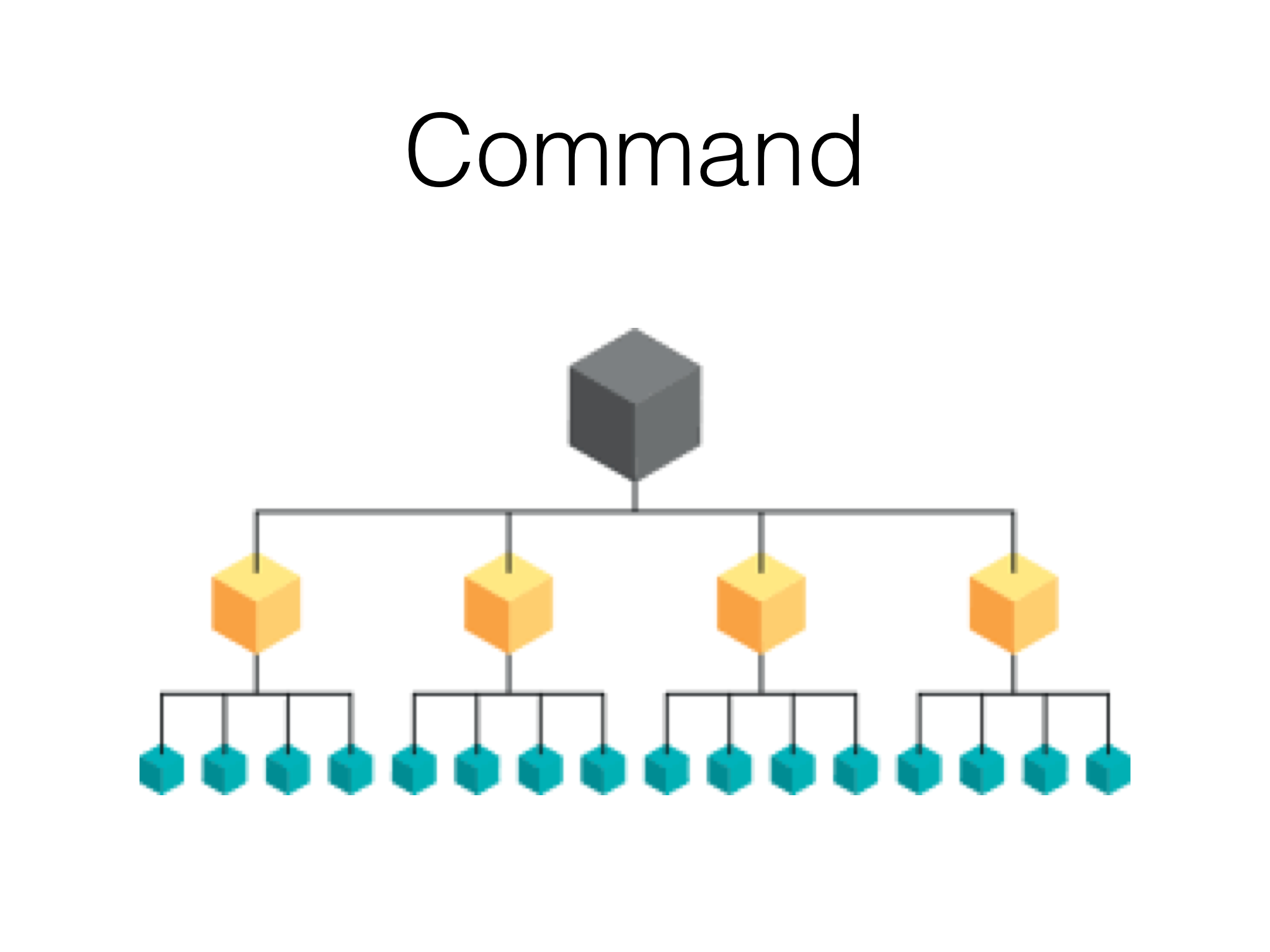
Healthcare is ruled by thousands of these top down frameworks, there may be numerous within each institution.
Above this, reinforcing it all is an ever increasing cloud of healthcare governance. These governance groups often lack an organisational memory – the average lifespan of staff members within these groups is 3 years – often too short to deliver effective change.
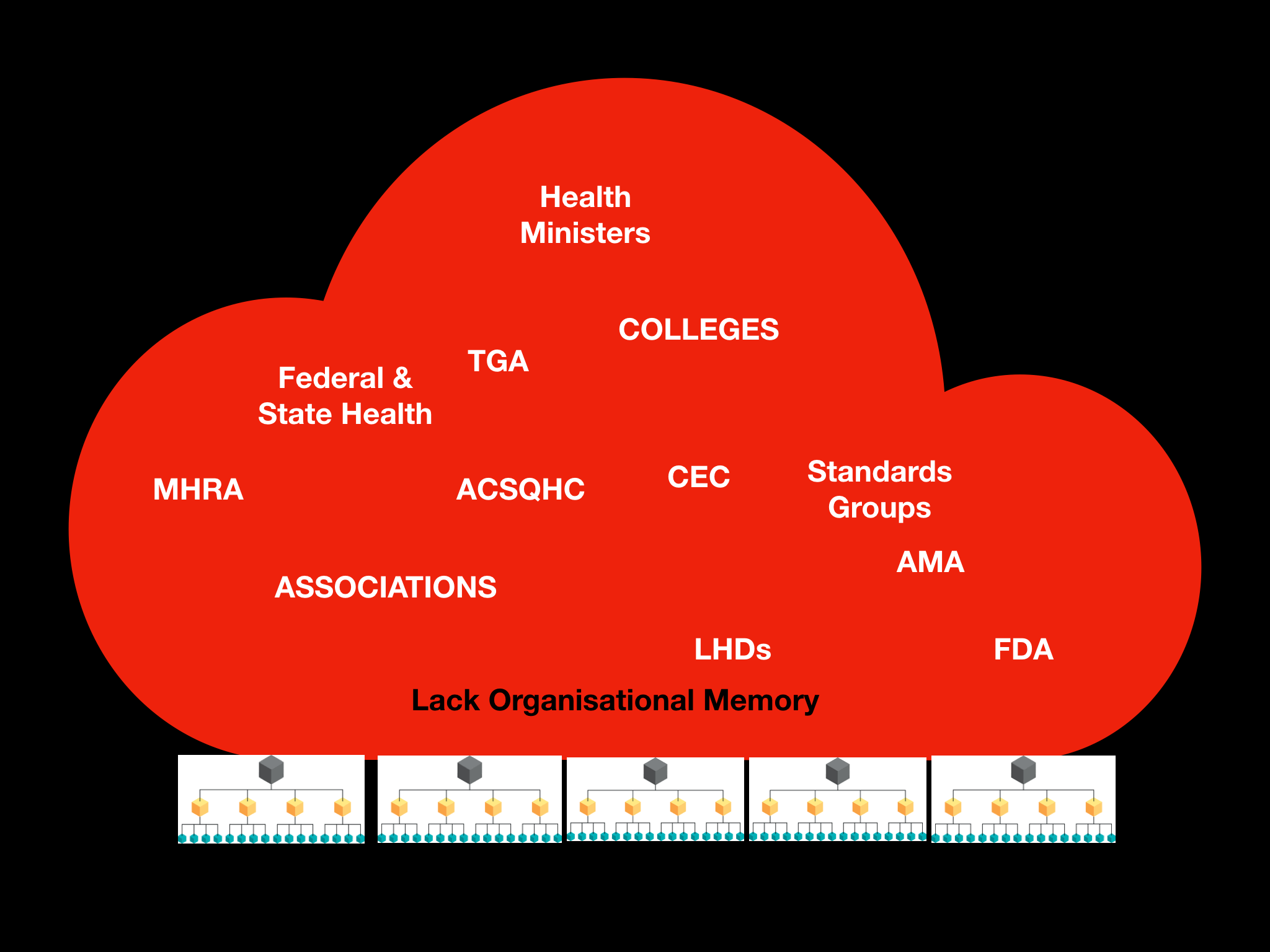
The more money we pump into this system the more solidified and impenetrable it becomes.
Perhaps the best opportunity we have is to introduce a symbiotic framework which can truly enhance collaboration, openness, empowerment and respect and where appropriate is able to overcome the unhealthy influence of top down frameworks when they resist improvement and cause harm.
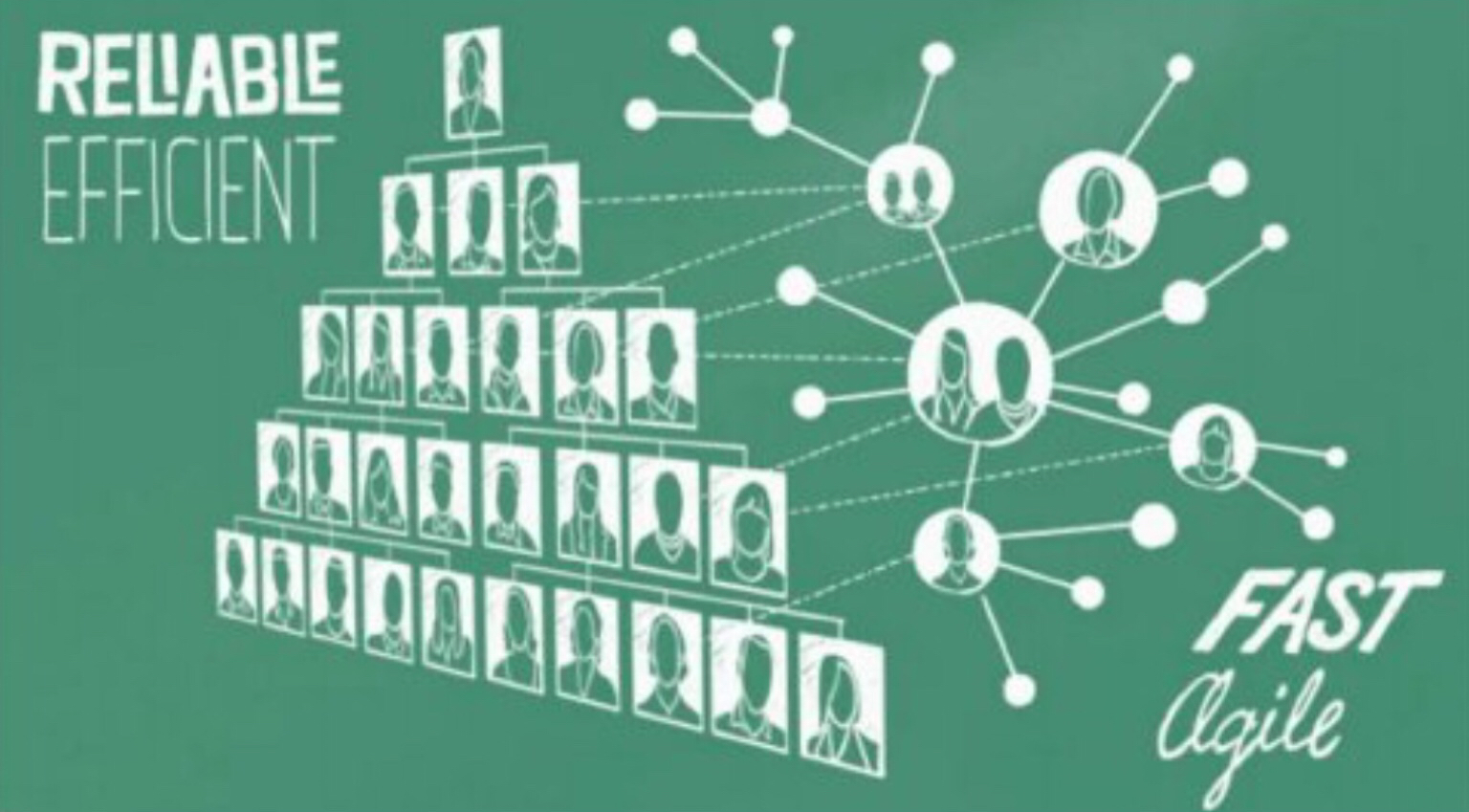
Social learning
What sets us apart from other primates is our capacity for social learning. Human children are able to observe what others are doing and pick it up almost straight away whereas other apes struggle to do this. However this social learning can also lead us to repeat past wrongs.
Resistance to the #TheatreCapChallenge makes this plain for others outside the industry to observe.
Poorly identifiable staff in operating theatres is suboptimal for patient care, however it’s become hard wired into us particularly through observing the most influential members of our groups continuing to do it – so we repeat past wrongs.
(Note at one institution we are prevented from presenting on the name & role cap initiative).
It’s interesting to observe that Standardisation of the Internal Cardiac Arrest Number at 2222 has received little resistance (a change to something) compared with name & role theatre caps (a change to ourselves).
People don’t resist change, what they resist is being changed…
Can we create an intelligent healthcare?
We need to become acutely aware of the actions we take, the environment we create, the words we don’t speak and those that we do and the influence they have on everyone around us.
We need to adopt ergonomic science – design the environment, of which humans are an inextricable part, in order to achieve desired outcomes.
Ergonomic initiatives will have a significant impact on delivering the safety improvements we need to see however to even suggest them in healthcare requires a culture of psychological safety.
Psychological Safety
An environment is psychologically safe when people feel they can offer suggestions and take sensible risks without provoking retaliation. There are many techniques which can be used to support this (Golden Silence, Brainwriting).
‘Cultures that encourage new ideas, foster dissent and have strong networks through which rebel ideas can flow innovate faster than those held back by cultures of intellectual conformity.’
‘Reaching out to outsiders for new ideas is not an act of disloyalty but the most enlightened form of solidarity.’
Look at those who like and share your thoughts – are they merely echoing your ideas within your own bubble. Perhaps find others to speak with – a great place to start is with patients and relatives who have suffered from medical error and suffered even greater pain from a lack of answers tantamount to cover up. They often spend the rest of their lives searching for ways for healthcare to improve. Ask them what they think – these are the people we owe it to most – we must change. Ask them – do they think the same way as you?
There is so much to change and improve – the first step comes in changing ourselves.
The rigid, conformist, solid structures of healthcare will resist ergonomic innovation despite it being better for patient care.
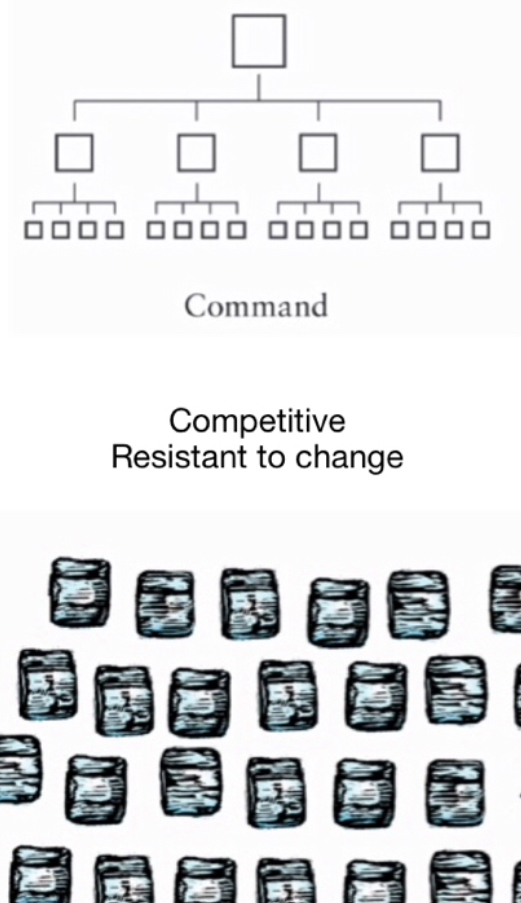
We need a complimentary framework which transparently listens to new ideas, innovates, collaborates and refines.
We are connected more than ever before though the internet to achieve this – a networked team of teams, collaborative, fast, agile and innovative:
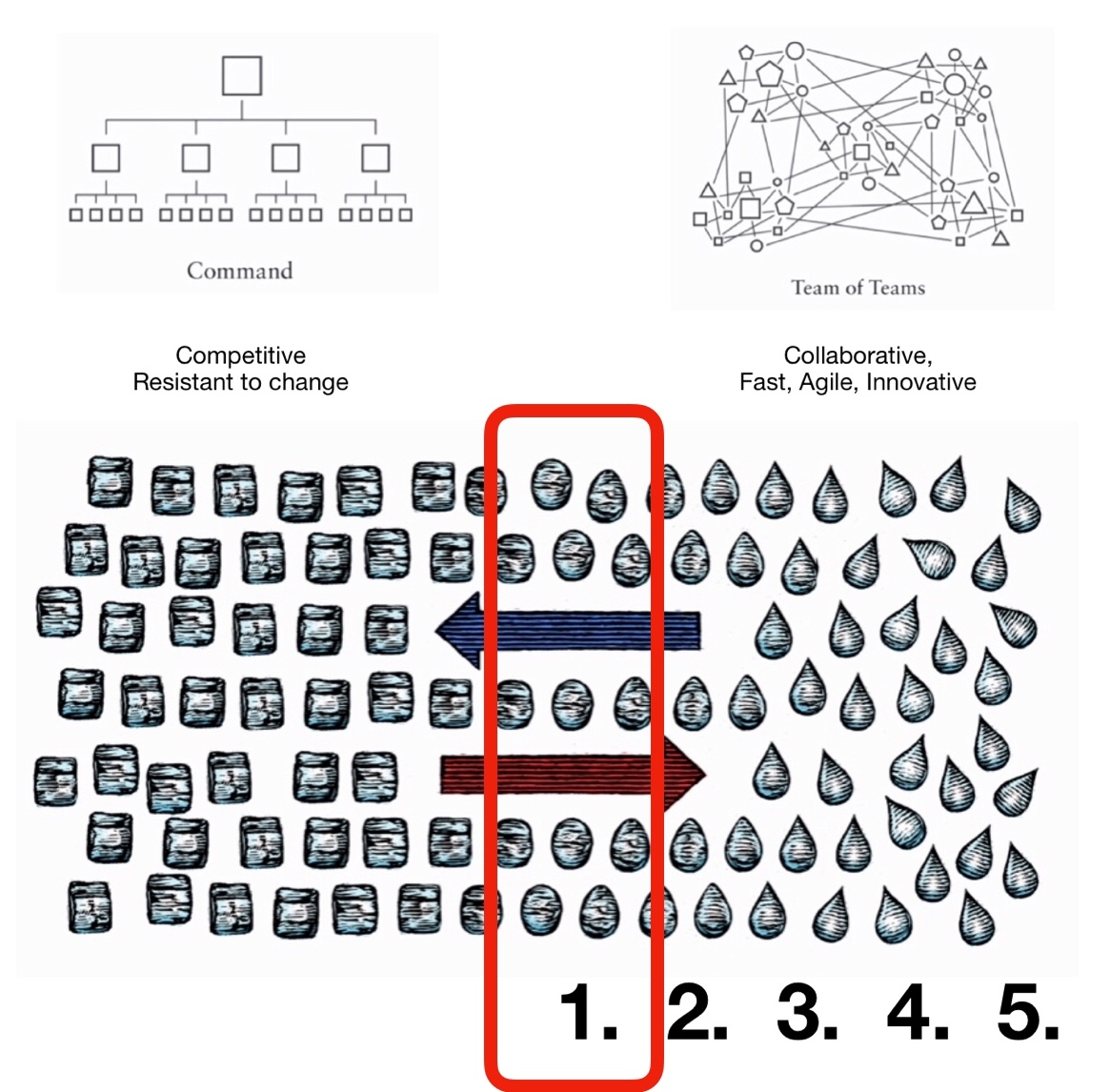
As these refinements progress and become obviously better for patient care (level 5 to 1) then we need the support from all levels of healthcare governance to drive them to fruition (level 1). (International Standardisation of the internal cardiac arrest number a great example of a level 1 initiative).
While healthcare remains one of the most trusted professions at present it won’t deliver the change and improvement we need for patient safety to improve. While the individuals within it are highly trustworthy is it time to stop trusting healthcare itself and start thinking again?
We need to understand our social learning – while it’s served us well as an evolutionary trait it also leads us to repeat past wrongs. Within healthcare the same errors repeat again and again while we refuse to accept our human limitation.
We need to accept ergonomic science – while we don’t our patients, relatives and front line staff will increasingly suffer.
The top down frameworks utilised throughout healthcare internationally will fail to provide the psychological safety for ergonomic system focused innovations to be supported, refined and introduced.
A networked, open transparent framework will.
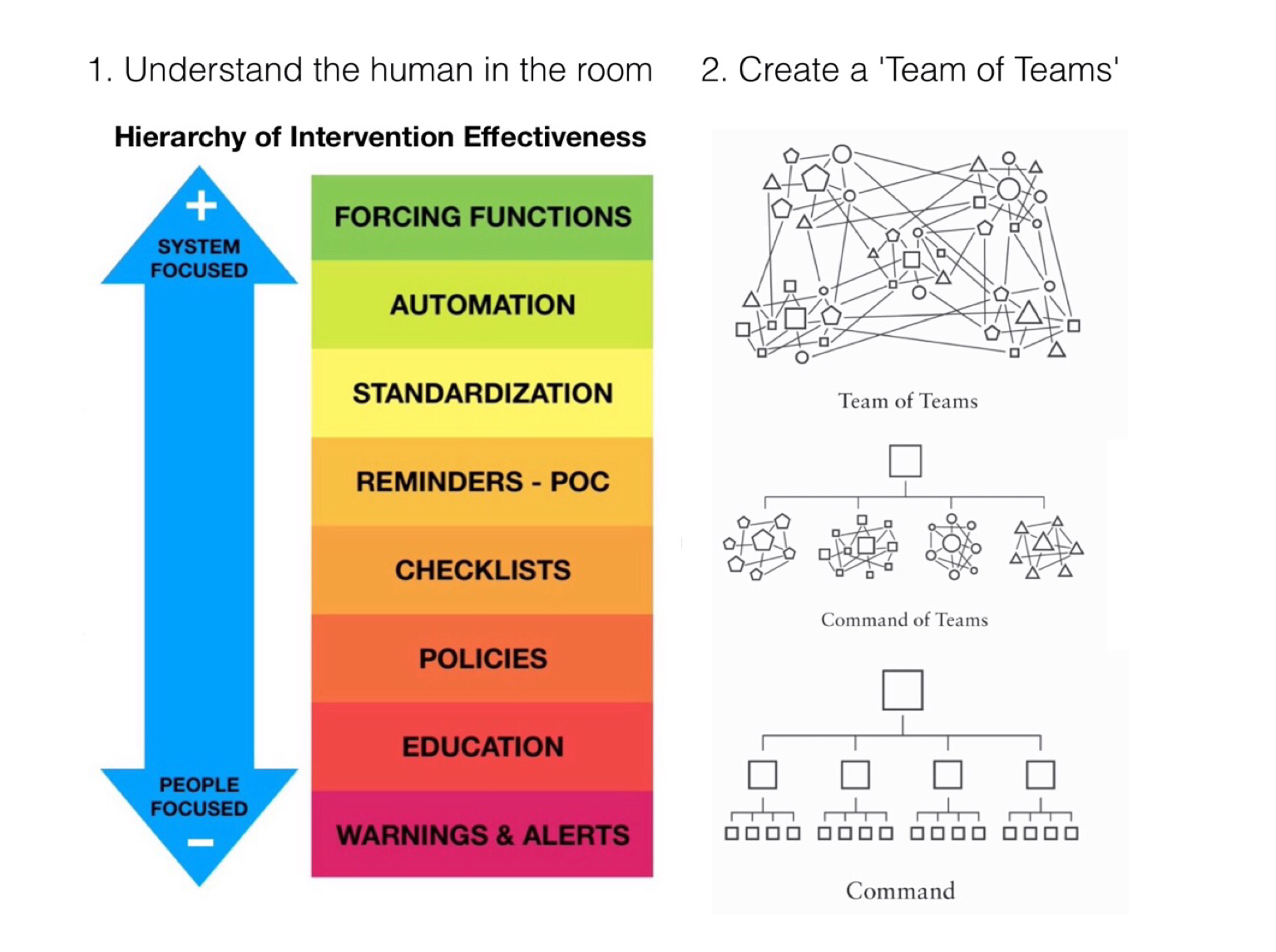
Welcome to The PatientSafe Network – together we’ll create the best environment for patient care – whatever your background please help!
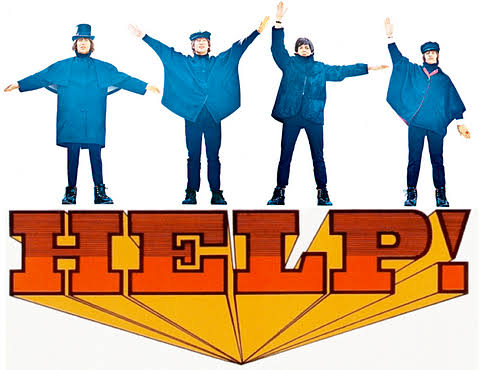
We hope to gain trust through demonstrating how a networked team approach can deliver change and improvement in healthcare.
The improvements delivered so far have been brought about because of the passionate support from numerous individuals and with minimal funding – any support through donations or otherwise is extremely welcome and will be put towards projects aimed at delivering the best environment for patient care.
While there are numerous projects underway these are some of our achievements:
Name & Role Identification #TheatreCapChallenge – Global impact. We have an over 80 strong international team continually providing data to support this obvious improvement to patient care and safety – helping overcome resistance. Extended to labelling of workwear outside operating theatres – embroidered scrub tops and other uniforms.
2222 – Cardiac Arrest/Hospital Emergency Number Standardisation. Supporting the great work of Dr David Whitaker. We’ve helped delivered standardisation in all public hospitals in NSW and all Ramsay Healthcare Hospitals across Australia. We’re driving this initiative further utilising the innovative Ushahidi platform to allow people across the world to geolocate their hospital Cardiac Arrest Number. We have a 20 strong working group which will increase internationally with further funding developing a list of ambassadors to drive standardisation in their geographical region.
Recall of non beveled Draeger APL valves across Australia. We will continue to push for their removal internationally.
Indistinct Chlorhexidine – Major company changed product colouring and recalled its indistinct chlorhexidine.
Anaesthetic Filters tethered caps to become standard for procurement through in one state.
Environmental Sustainability – Clausen Hooks to be removed from procurement by NHS Supply Chain and one Australian state.
Supported the development of an independent equipment rating and procurement system.
Developed an independent rating and assessment of specific equipment focussed on ensuring optimal Bag Valve Mask/Resuscitator design delivered to the front line.
Assessment of oxygen analysers outside operating theatres. Supported a pilot study which has indicated a significant improvement in PreOxygenation in emergency departments with the introduction of oxygen analysers.
Created an awareness campaign for central line air emboli. Further simple initiatives still wait to be implemented which would almost eradicate this issue which statistically causes 3 to 7 deaths every day
Support for introduction of ISO fine bore connection standards in Australia.
Where will donation money go
2222 Standardisation – Funding for marketing campaigns and secretarial support to deliver this initiative worldwide.
Develop The PatientSafe Network platform further allowing anyone to easily view and interact with projects underway, obtain collaborative support and commence new projects too.
Much of the imagery and information in this post is taken from the books
A huge thank you to the authors and their dedication to driving change and improvement.

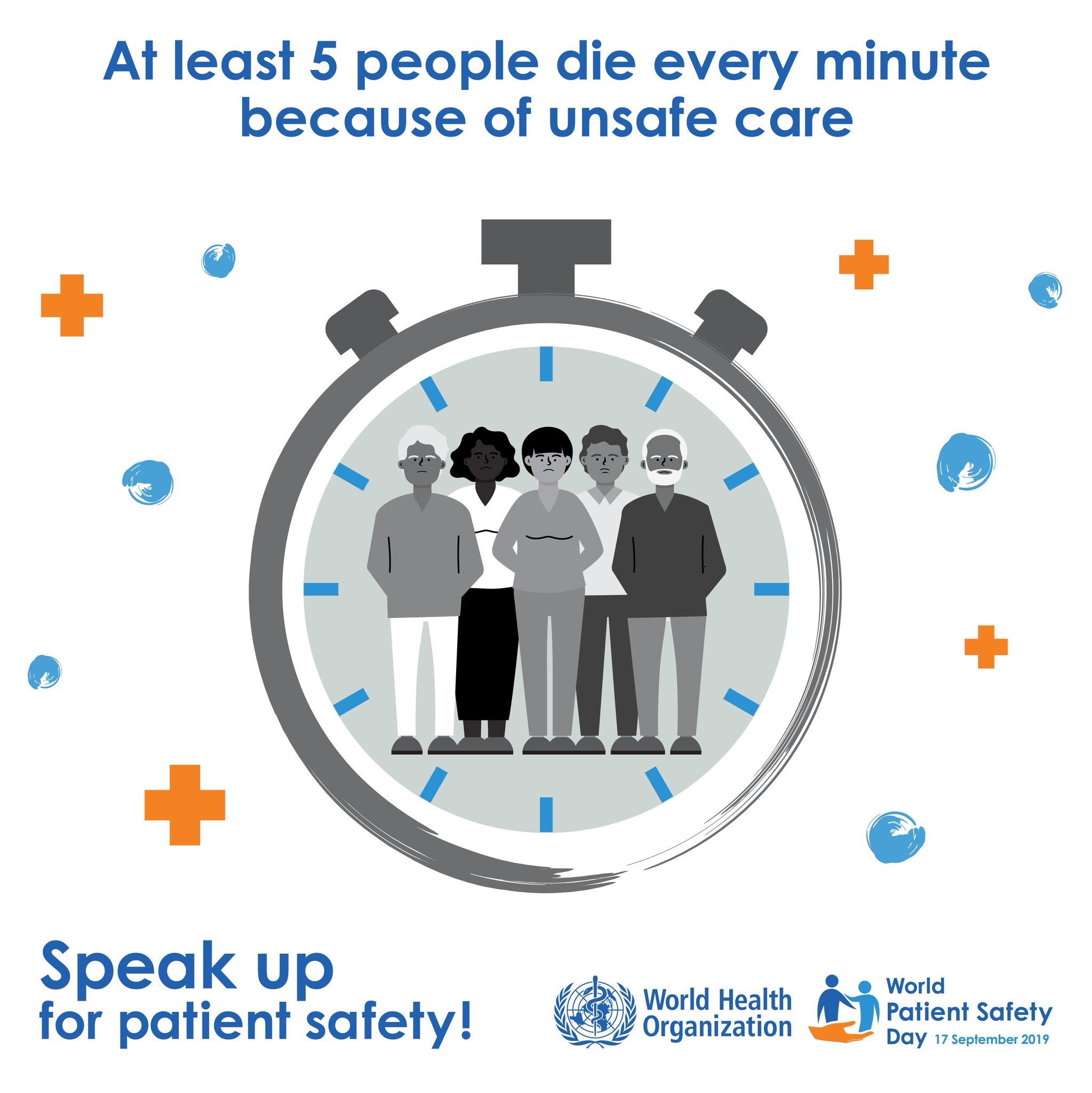
One Comment